Trending
Explore all topics

Fisetin's Role in Combating Oxidative Stress
Fisetin, a flavonoid found in strawberries, apples, and onions, is gaining attention for its ability to reduce oxidative stress - a key factor in aging and chronic diseases. Oxidative stress...
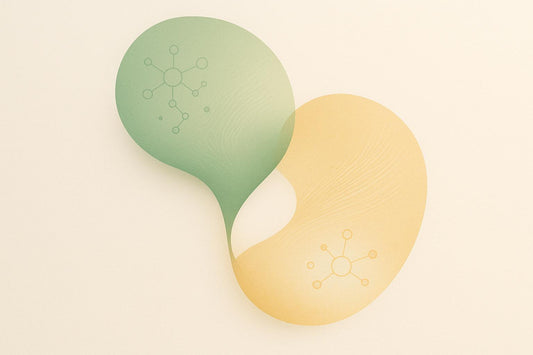
Collagen and Hyaluronic Acid: Science Behind Synergy
Collagen and hyaluronic acid are two key molecules that help maintain skin elasticity, hydration, and joint health. As we age, our bodies produce less of both, leading to wrinkles, sagging...

DNA vs. Biomarkers: AI Age Prediction Metrics
AI is reshaping how we measure biological age, offering two main methods: DNA methylation and biomarker analysis. While your chronological age is simply the number of years you've lived, biological...

How Aerobic Exercise Improves Heart Rate Variability
Aerobic exercise is one of the most effective ways to improve heart rate variability (HRV), a key indicator of cardiovascular health and stress regulation. HRV measures the variation in time...
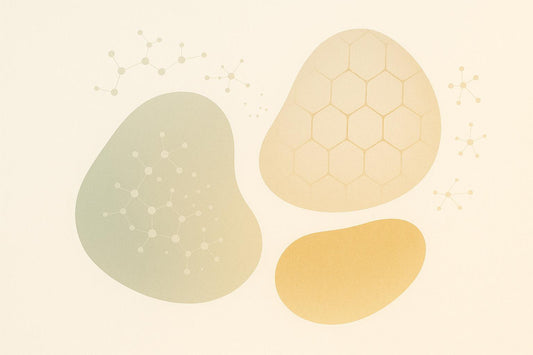
Extracellular Matrix and Skin Aging: What to Know
The extracellular matrix (ECM) is the skin's structural framework, responsible for firmness, elasticity, and overall skin health. As we age, both internal factors (like genetics and hormones) and external factors...
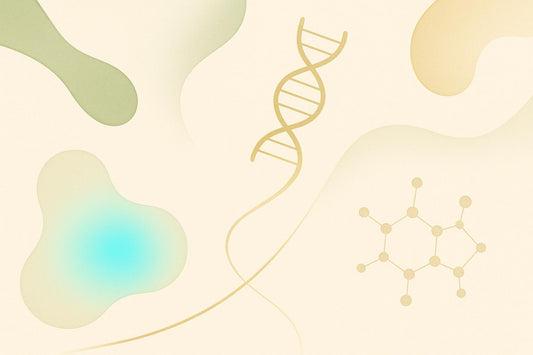
AI and Genomics in Personalized Nutrition
AI and genomics are reshaping how we think about nutrition. Instead of generic dietary advice, these technologies help create meal plans tailored to your genetic makeup, lifestyle, and health goals....

Oxidative Stress in Aging Hearts: Arrhythmia Risks
Oxidative stress is a major factor in heart rhythm problems as we age. It happens when harmful molecules, called reactive oxygen species (ROS), outpace the body's antioxidant defenses, leading to...
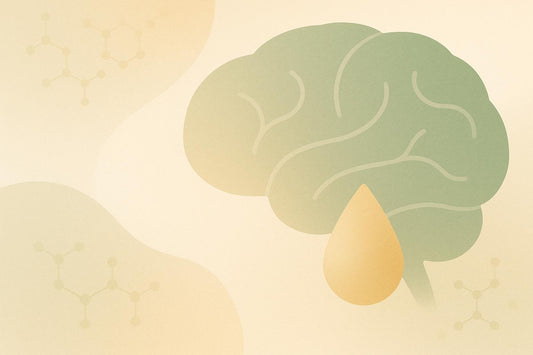
Clinical Trials on Omega-3s and Dementia Prevention
Omega-3 fatty acids, particularly DHA and EPA, are essential for brain health and may play a role in reducing the risk of dementia, including Alzheimer’s. While research shows mixed results,...

Prebiotics and Systemic Inflammation: What Studies Show
Prebiotics could be a game-changer in managing chronic inflammation and promoting healthy aging. Here's the quick takeaway: What are Prebiotics? Non-digestible fibers that feed beneficial gut bacteria, found in foods...

Mitochondrial Dynamics and Aging: What Science Says
Mitochondria, the energy producers in your cells, play a key role in aging. Their ability to divide (fission) and merge (fusion) keeps cells healthy by repairing damage and maintaining energy...
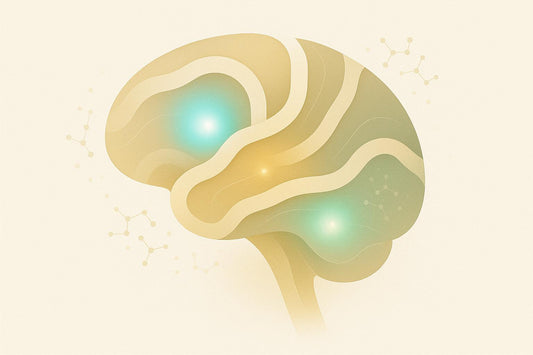
NMN and Brain Energy Metabolism
The human brain uses about 20% of the body’s glucose, but as we age, its energy system weakens. This decline in energy impacts cognitive health and increases the risk of...

Catalase and Blood-Brain Barrier Protection
Catalase is a key enzyme that helps protect your brain by neutralizing harmful oxidative stress, specifically hydrogen peroxide, which can damage the blood-brain barrier (BBB). The BBB acts as your...

How Mitochondrial Biogenesis Affects Skin Cells
Mitochondrial biogenesis is how your cells create new mitochondria, the energy producers essential for healthy, vibrant skin. This process keeps skin cells energized, supports repair, and slows visible aging. However,...
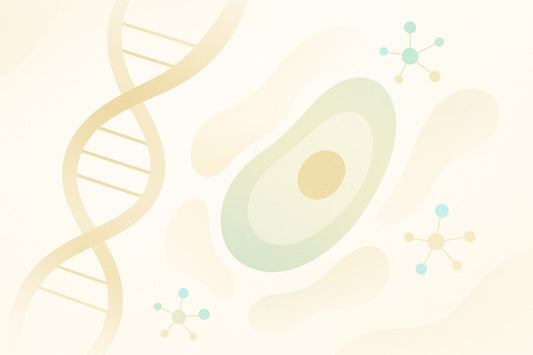
Genetic Variants Linked to Metabolic Syndrome
Metabolic syndrome is a condition that increases the risk of heart disease, diabetes, and stroke. It affects about one-third of U.S. adults and is diagnosed when three or more of...
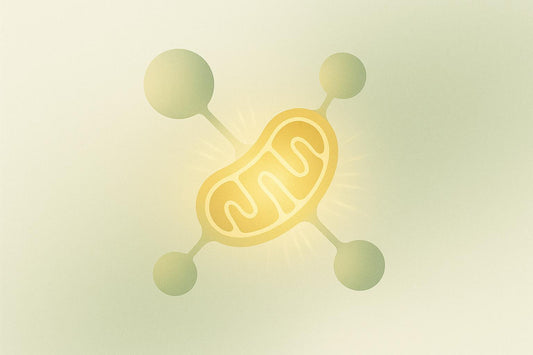
Preventing Mitochondrial Oxidative Damage
Mitochondria power your cells, but oxidative stress can damage them, accelerating aging and increasing disease risks. Here's what you need to know: What happens: Mitochondria produce energy (ATP) but also...

NMN and ROS: Cellular Protection
NMN (nicotinamide mononucleotide) is a molecule that helps increase NAD⁺ levels in the body, which are essential for energy production, DNA repair, and managing oxidative stress caused by reactive oxygen...
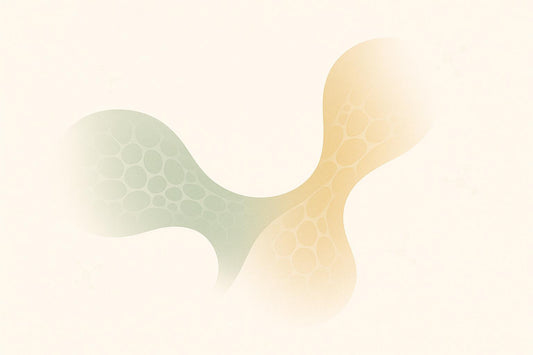
Gut Dysbiosis and Immune Aging: Key Links
Gut dysbiosis, an imbalance in gut bacteria, accelerates immune aging and impacts overall health. This disruption triggers chronic inflammation, weakens immune defenses, and increases risks for age-related diseases like Alzheimer's,...
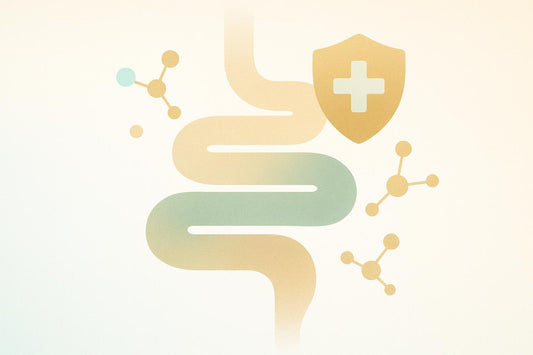
Gut-Immune Axis: 5 Nutritional Tips for Aging Well
Your gut and immune system are closely connected, and keeping them in sync becomes more important as you age. A balanced gut microbiome can boost immunity, reduce inflammation, and support...

Ultimate Guide to Biomarkers in Age Reversal Trials
Can we measure biological aging and reverse it? Biomarkers, measurable biological indicators, are the key. They help researchers evaluate whether age-reversal treatments work by tracking changes at molecular, cellular, and...
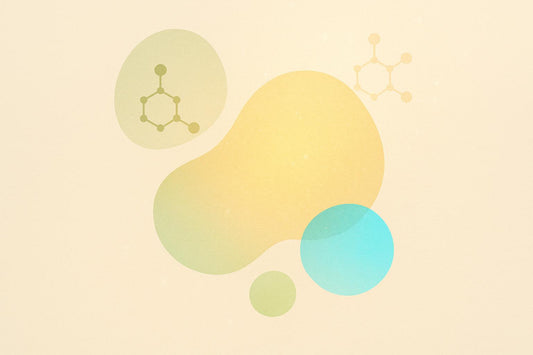
Why Recovery Slows with Age and How Tools Help
As you age, recovery takes longer due to muscle loss, chronic inflammation, and reduced cellular energy. These changes can lead to slower healing, increased injury risk, and reduced mobility. Here’s...
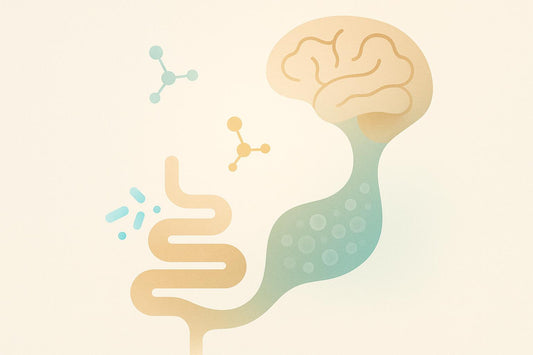
How Gut Microbiome Impacts Brain Aging
Your gut affects your brain more than you think. The gut-brain axis is a communication network connecting your digestive system to your brain, influencing mood, memory, and aging. Your gut...

Optimal Exercise Frequency: What Studies Show
Want to live longer and healthier? Exercise regularly. Studies show that consistent physical activity can extend your life by up to 7 years and reduce the risk of death by...
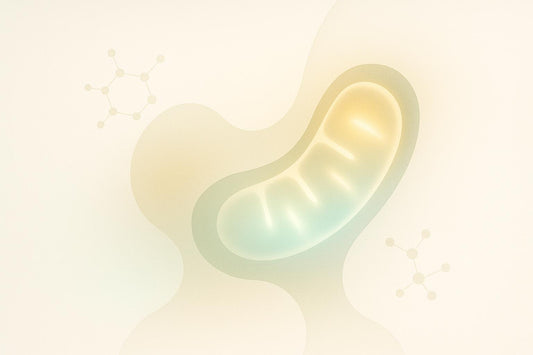
Caloric Restriction and Mitochondrial Biogenesis
Caloric restriction (CR) is a dietary approach that reduces calorie intake without causing malnutrition, and it's been linked to longer lifespans and better cellular health. This process is closely tied...
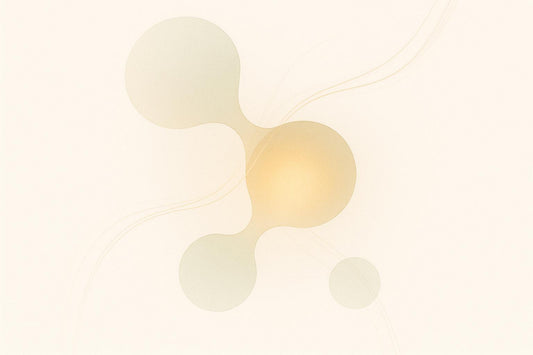
What Are Caloric Restriction Mimetic Pathways?
Caloric Restriction Mimetic Pathways mimic the effects of calorie reduction without needing to eat less. Caloric restriction (CR) has been shown to extend lifespan and improve health by activating cellular...
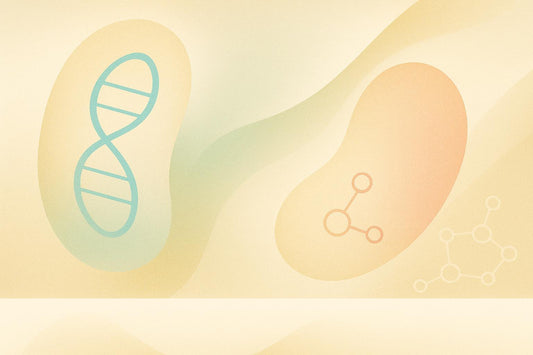
Oxidative Stress and Mitochondrial DNA Mutations
Oxidative stress harms your cells, and mitochondrial DNA (mtDNA) is especially at risk. Why does this matter? Damage to mtDNA can accelerate aging and lead to chronic diseases like cancer,...

Ultimate Guide to Gut Microbiota Diversity
Your gut microbiota is a complex ecosystem of trillions of microorganisms that play a critical role in digestion, immunity, and overall health. A diverse gut microbiota strengthens your immune system,...
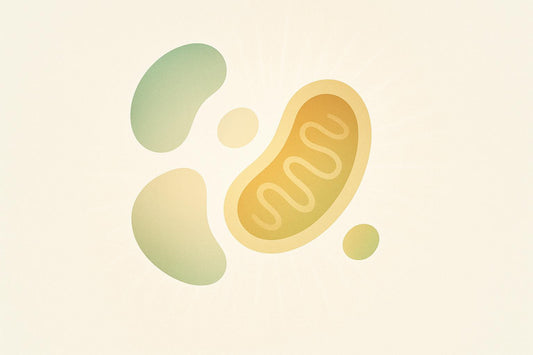
How HIIT Improves Mitochondrial Health in Aging
As you age, your mitochondria - the energy producers in your cells - become less efficient, leading to reduced energy, decreased muscle strength, and slower recovery. But HIIT can reverse...

Machine Learning for DNA Methylation Age Prediction
DNA methylation patterns are transforming how we measure aging, and machine learning is at the center of this shift. Here's what you need to know: DNA methylation involves chemical changes...

How Caloric Restriction Preserves Mitochondrial Function
Caloric restriction (CR) is a dietary approach that involves reducing calorie intake while maintaining proper nutrition. Research shows that CR can slow aging, improve mitochondrial function, and reduce the risk...

How to Start an Anti-Inflammatory Diet
An anti-inflammatory diet focuses on reducing inflammation in the body by eating whole, nutrient-rich foods while avoiding processed and inflammatory items. Chronic inflammation is linked to serious health issues like...

Targeted Protein Degradation vs. Cellular Aging
Targeted Protein Degradation (TPD) is reshaping how we approach aging and disease by removing harmful proteins directly, unlike traditional methods that only block their effects. Aging disrupts the balance of...

How Biosensors Track Sleep Stages
Biosensors have transformed sleep tracking, giving you precise insights into your sleep stages from the comfort of your home. Unlike older methods like sleep diaries or lab studies, these devices...

NMN Dosage and Blood Glucose: What Studies Show
NMN (nicotinamide mononucleotide) is a molecule that boosts NAD⁺ levels, which decline with age and are essential for energy metabolism and DNA repair. While NMN supplementation shows promise for improving...

Epigenetic Risks in High-Exposure Jobs
Your workplace environment could be altering your genes - and not in a good way. Workers in industries like manufacturing, agriculture, and construction face long-term health risks due to toxic...
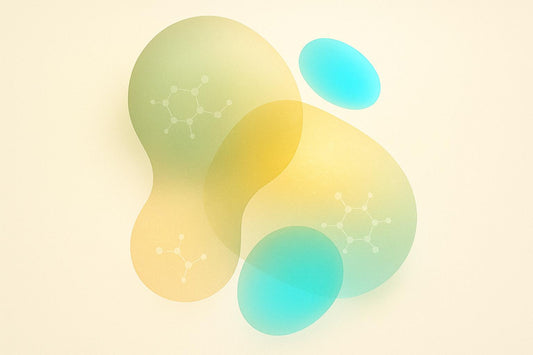
Resveratrol and Inflammatory Biomarkers: Long-Term Effects
Resveratrol may help reduce inflammation over time, supporting healthy aging. Research shows it can lower key inflammatory markers like C-reactive protein (CRP) and tumor necrosis factor-alpha (TNF-α). However, its effects...

Liposomal Delivery vs. Regular Supplements
Liposomal supplements absorb nutrients much better than regular ones. Traditional supplements lose up to 80% of nutrients during digestion, while liposomal delivery protects and delivers nutrients directly into your bloodstream,...
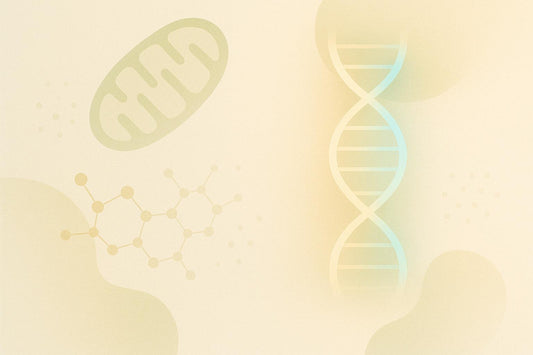
Longevity and Mitochondrial DNA: Genetic Connections
Mitochondrial DNA (mtDNA) plays a key role in how we age and how long we live. Here's what you need to know: What is mtDNA? It’s the DNA in your...

5 Side Effects of Probiotics and How to Manage Them
Probiotics can support gut health, immunity, and more, but they might cause some side effects, especially when you first start taking them. Here's a quick overview of the five most...
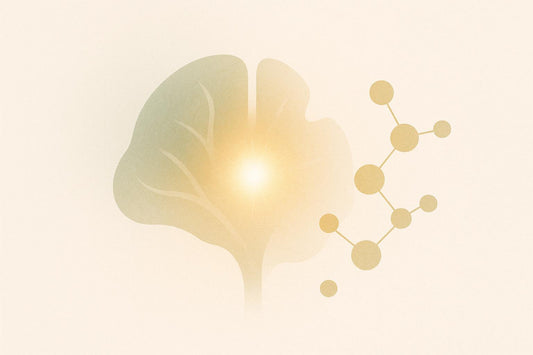
How Selenium Supports Glutathione Peroxidase in Neurons
Selenium is essential for brain protection. It activates glutathione peroxidase (GPx), an enzyme that defends neurons from oxidative damage caused by reactive oxygen species (ROS). Glutathione peroxidase neutralizes harmful compounds....

Calcium Signaling in Aging Immune Cells
Aging weakens your immune system, and calcium signaling plays a big role in this decline. Calcium is essential for immune cell function, but as we age, our cells lose the...

Gut Microbiome's Role in Stress-Related Inflammation
Stress affects your gut health, which in turn impacts your overall health and speeds up aging. Here's what you need to know: Your gut microbiome is home to trillions of...

Prolactin and Sleep in Aging Adults
Struggling with sleep as you age? Prolactin, a hormone deeply tied to sleep regulation, may be a key factor. Here’s what you need to know: Prolactin levels naturally rise at...

5 Key Outcomes from Senolytic Combination Trials
Senolytic combination therapies are showing promise in addressing aging and age-related diseases by targeting harmful senescent cells. Here are five key takeaways from recent research and clinical trials: Improved Bone...

How Temperature Affects Sleep Quality
Did you know? Your bedroom temperature can make or break your sleep quality. Studies show the ideal range for restful sleep is 60°F to 67°F. Too hot or too cold?...

Personalized Sleep Monitoring: Ethical Challenges
Sleep monitoring tools are everywhere - from smartwatches to mobile apps. But they come with big ethical concerns like privacy risks, data security issues, and access barriers. Here's what you...
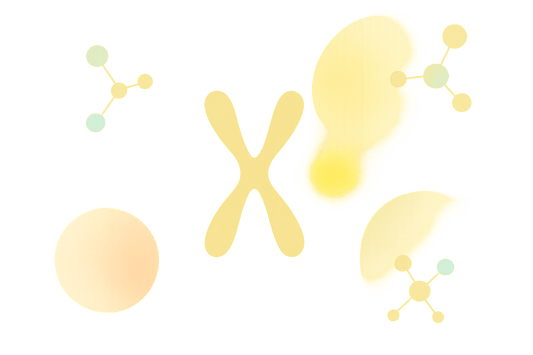
Hormones and Telomere Length: Key Connections
Did you know that your hormones might be influencing how fast your cells age? Telomeres, the protective caps at the ends of your chromosomes, shorten as you age. Hormones like...

7 Factors That Impact Nutrient Absorption
Want to get the most out of your food and supplements? Your body’s ability to absorb nutrients depends on several factors, and even the healthiest diet can fall short if...
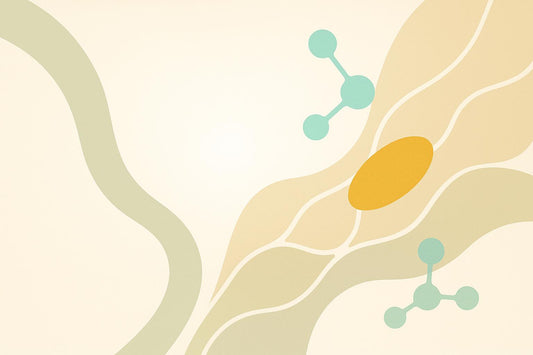
Curcumin and Blood-Brain Barrier: Key Mechanisms
Curcumin, the active compound in turmeric, could help protect your brain by supporting the blood-brain barrier (BBB) - a critical defense system that shields your brain from harmful substances. However,...

p16INK4a: Role of Diet in Cellular Aging
p16INK4a is a key marker of aging and cellular health. It increases with age, contributing to cellular senescence, which can lead to age-related diseases. Diet plays a critical role in...

Challenges in Standardizing Herbal Extracts
Standardizing herbal extracts is tough but crucial. Unlike synthetic drugs, herbal products face inconsistent quality due to plant variability, complex compositions, and fragmented regulations. Here's why it matters and what's...





